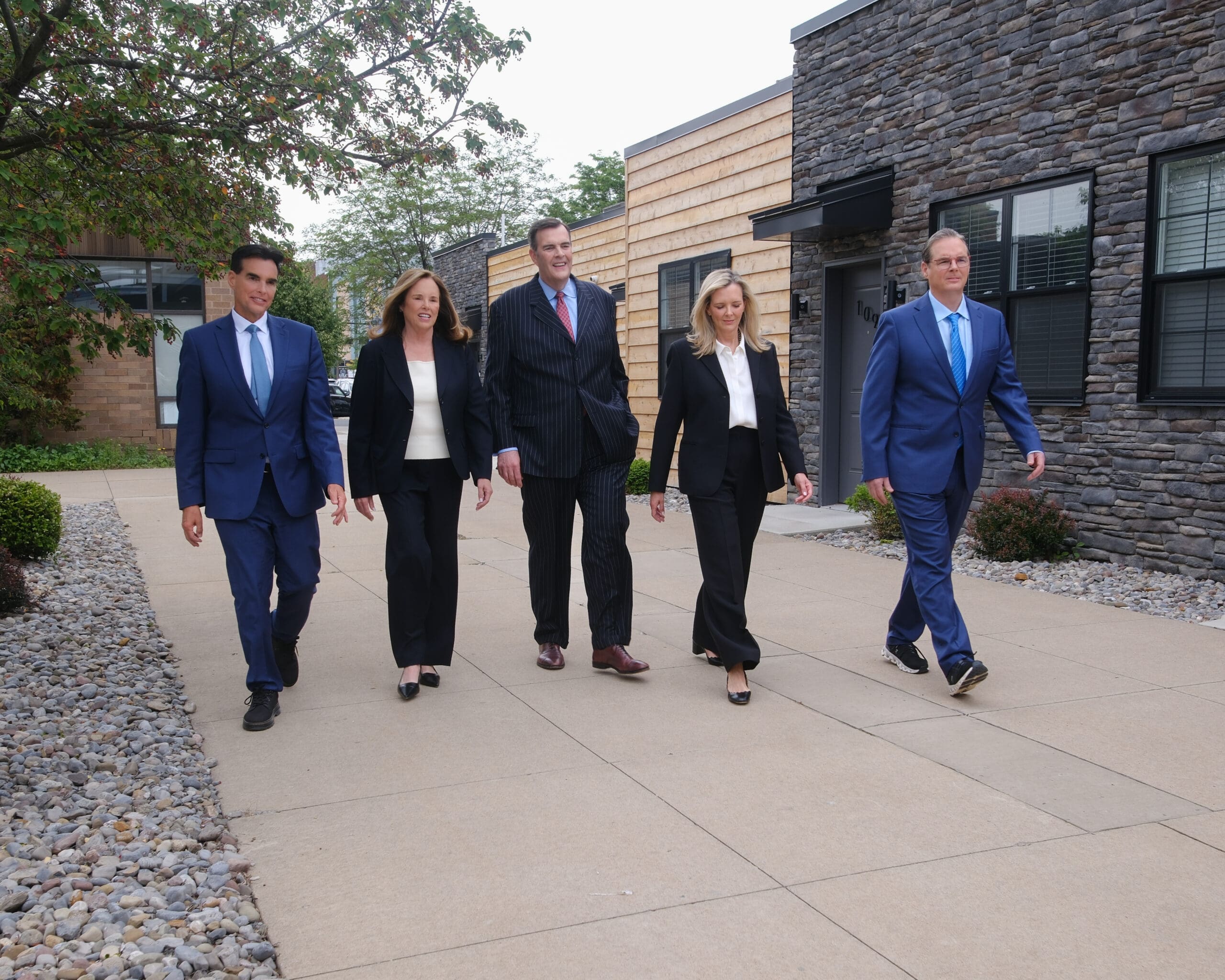How workers’ compensation lawyers get paid is one of the first questions many injured workers ask when they consider hiring one. Most workers’ compensation lawyers are paid through contingency fees, which means you don’t pay up front. When you work with your workers’ compensation lawyer, the fee usually comes out of the settlement or award, so you only pay once your case is resolved. If you’ve been hurt at work and need advice, call Munley Law today for a free consultation with a workers’ compensation attorney.
Contact a Personal Injury Lawyer at Munley Law
How Do Workers’ Compensation Lawyers Structure Their Fees?
When you’re hurt at work, one of the first questions that comes up is how much it will cost to hire a lawyer. Workers’ compensation lawyers use different fee structures depending on the case, but most rely on contingency fees. By comparing these fee structures, you can understand why contingency arrangements are used most often in workers’ comp cases.
Different Fee Models
Lawyers may use a few types of fee structures: contingency fees, hourly rates, and flat fees. Contingency fees — meaning the lawyer is paid only if your case is successful — are the most common for workers’ compensation cases. Hourly rates and flat fees are used less often. Most injured workers cannot afford to pay a lawyer by the hour while missing time from work, so contingency agreements remain the standard approach.
How Percentages Are Calculated
If your lawyer works on a contingency fee, the payment usually comes out as a percentage of your settlement or award. In workers’ compensation cases, this contingency percentage often ranges from 10%–25% of the settlement. These percentages are not arbitrary. Courts and state agencies review and approve the fee so it stays fair. This process also answers a common question: How do workers’ comp attorneys get paid?
What “No Upfront Costs” Really Means
When lawyers advertise no upfront costs, it means you don’t have to pay anything at the start of your case. The lawyer’s fee is collected only upon settlement or award, so there are no upfront costs while your claim is pending. This payment timing makes hiring a lawyer realistic even if you are out of work. When it comes to who pays the workers’ comp lawyer in a work injury claim, the insurance company will usually pay the law firm directly from the settlement or award, and you keep the rest.
What Legal Services Are Covered by a Workers’ Compensation Lawyer?
When you hire a workers’ comp lawyer, you are choosing someone who handles the difficult parts of your case so you do not have to. These claims involve many moving parts, and missing even a single step can slow things down. We step in to review your case details, prepare filings on your behalf, and stand beside you at hearings or appeals.
Case Evaluation and Initial Strategy
We begin with a careful case evaluation. Our team reviews your medical reports alongside your employer’s filings to see how your injury has been recorded. This allows us to spot any gaps or inconsistencies that could be used to challenge your benefits. Our workers’ comp attorneys also use this stage to plan the next moves. We decide which evidence to gather first and whether additional medical opinions are needed, then we prepare for the arguments the insurance company might raise.
Documentation and Filing Requirements
Filing for workers’ compensation involves steady paperwork, and even one mistake can cause a delay. We prepare petitions and appeals while keeping up with the ongoing filings that keep your claim moving forward. You should not have to stress about forms or filings. We handle that for you. Our team reviews every detail, from signatures to submission, so your claim stays active. By taking over the documentation process, we free you from the stress of deadlines and let you keep your focus on recovery.
Advocacy at Hearings and Appeals
If your case goes before a judge, we represent you directly. We present evidence and question witnesses while responding to the arguments raised by the insurance company. Our goal is to make sure the facts of your injury and how it affects your daily life are clear to all relevant parties. If an appeal is necessary, we continue the fight on your behalf. We use medical records and testimony alongside legal arguments to show why your claim should be approved. Through every stage, our focus stays on protecting your benefits so you can focus on recovering and moving forward with your life.
What Expenses Affect Legal Fees?
When you hire a workers’ compensation lawyer, the attorney’s fee is only part of the cost. Cases often come with additional expenses that ensure the evidence is strong enough to support your claim. If you have ever wondered how a workers’ comp lawyer gets paid, it helps to know that these case expenses are handled separately from the fee you agree to with your lawyer. Some of the most common expenses in workers’ compensation cases include:
-
Court costs
-
Filing fees
-
Medical records
-
Deposition expenses
-
Expert witnesses
-
Investigator fees
-
Travel costs
-
Copying and postage
-
Transcript costs
-
Independent medical examinations (IME)
-
Administrative expenses
-
Technology fees for presenting evidence
These expenses don’t count as attorney fees, and they are usually paid out of your settlement or award. Under 77 P.S. § 996, Pennsylvania requires courts to approve attorney fees in workers’ compensation cases, which includes a review of related expenses. The Pennsylvania 90-day workers’ compensation law also adds deadlines for medical treatment and evidence. By knowing important details such as how do workers’ comp lawyers get paid and how these extra expenses are handled, you can see the bigger picture of what goes into a case like yours.
How Do Regulations at the State Level Impact Attorney Fees?
State regulations play a major part in how workers’ compensation lawyers in Pennsylvania are paid. These rules decide how fees are structured, when they need approval, and what protections apply to you as an injured worker. When you have an understanding of how these laws work, you can feel more confident about what to expect with attorney fees.
Caps on Workers’ Compensation Fees
Pennsylvania law places fee caps on what workers’ compensation lawyers can charge. In most cases, the fee cannot go above a set percentage of your benefits, and courts must approve the arrangement before anything is deducted. These fee caps are designed to keep legal help affordable for injured workers. With these limits in place, you don’t have to worry about attorney fees taking an unfair portion of your benefits.
When Judges Review Attorney Payments
Workers’ compensation judges must review attorney fees before they’re paid. Under 77 P.S. § 998, judges evaluate approval requirements to make sure the fee is fair and consistent with Pennsylvania law. This process protects you by creating an independent check on what your lawyer charges. It means no fee comes out of your settlement without a judge confirming it meets the rules set by the state.
How Local Rules Protect Injured Workers
Local rules add another layer of protection for workers’ compensation claimants. Courts review charges carefully, limit the percentage that may be taken, and require justification for additional costs that may appear unreasonable. This matters because even medical care, like physical therapy, can affect your workers’ comp claim. If therapy or other treatments are part of your recovery, state regulations make sure attorney fees do not eat into those benefits unfairly. These rules are in place so you know more of your benefits stay where they belong: with you and your recovery.
What Does a Settlement Cover in a Workers’ Comp Case in PA?
When your workers’ comp case settles, the agreement usually includes more than one type of benefit. Settlement amounts may cover the treatment you still need and the income you lost while you were out of work. You may also receive payments for lasting conditions that change how you work or live. Some of the categories that may be included in a settlement are:
-
Lost wages: covers the income you missed while you were unable to work.
-
Medical expenses: pays for doctor visits, hospital stays, surgeries, prescriptions, and therapy.
-
Permanent disability benefits: provides ongoing payments if your injury permanently limits your ability to work.
-
Vocational retraining: helps you learn new skills if you cannot return to your previous job.
-
Mileage reimbursement: compensates you for the travel costs of attending medical appointments.
-
Partial disability benefits: supports you if you can work in a limited capacity but not full-time.
-
Total disability benefits: replaces wages if you cannot work at all because of your injury.
-
Rehabilitation services: covers physical therapy, counseling, or other treatments that help you recover function.
We use these categories to calculate the full value of your settlement and the related fees. Courts must approve compensation agreements and settlements in Pennsylvania under 77 P.S. § 1000.5 before they are final. This review makes sure your payment stays fair, and we make sure settlement amounts for lost wages and medical expenses are counted, along with any disability benefits you may receive.
Contact Your Workers’ Compensation Attorney Today
Choosing the right lawyer can ease the stress of a difficult claim. Your workers’ compensation attorney in Pennsylvania will take the time to explain what is happening with your case and outline the steps ahead so you are not left wondering what comes next. If you are ready to discuss your work injury claim in detail, contact us to connect with a workers’ compensation lawyer from Munley Law.










